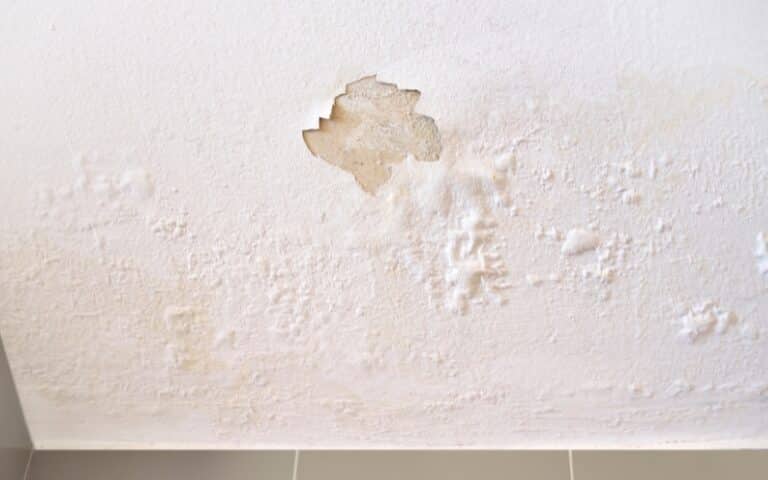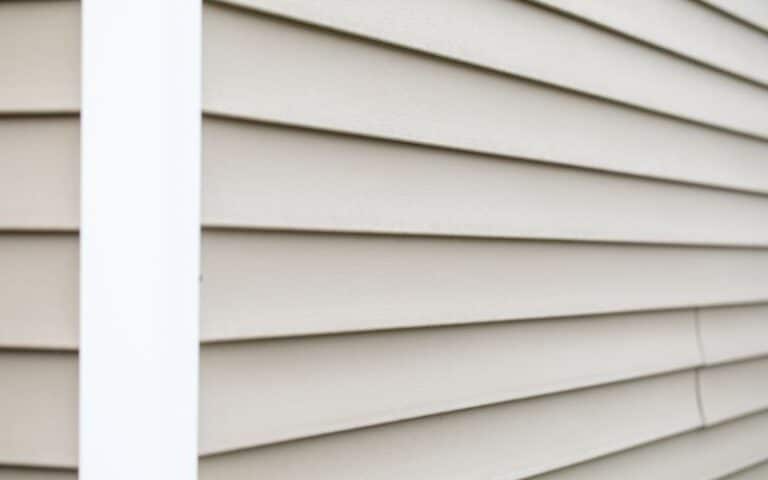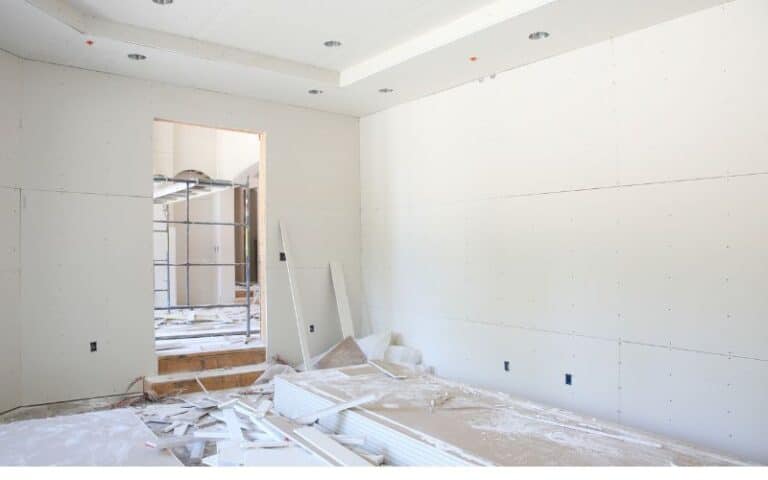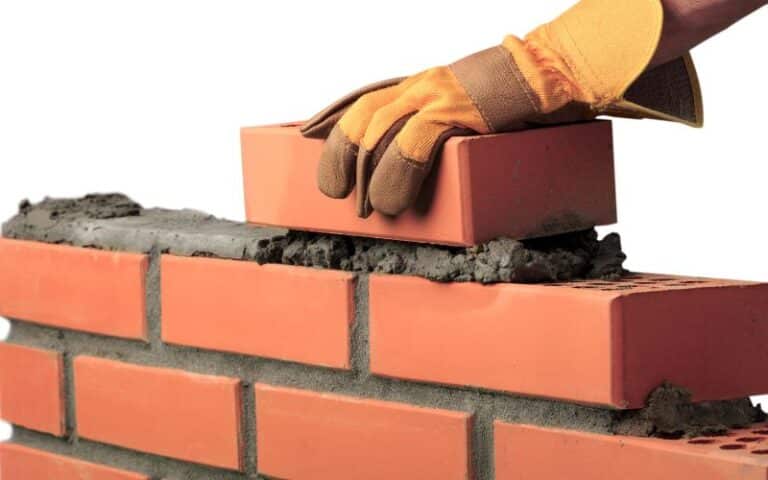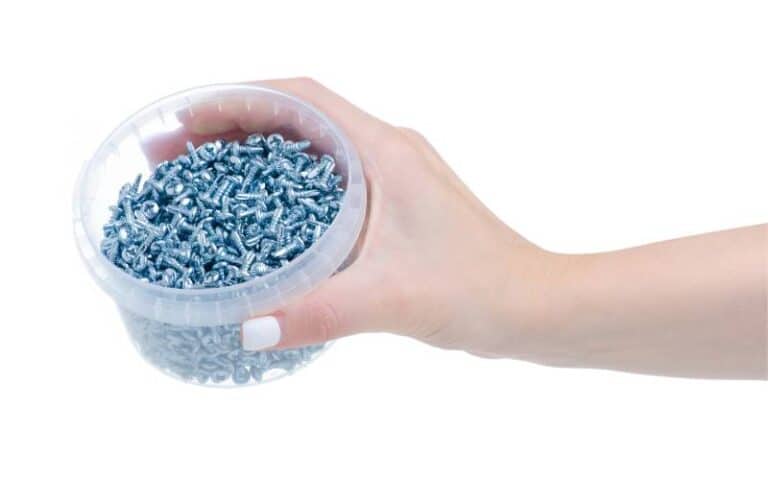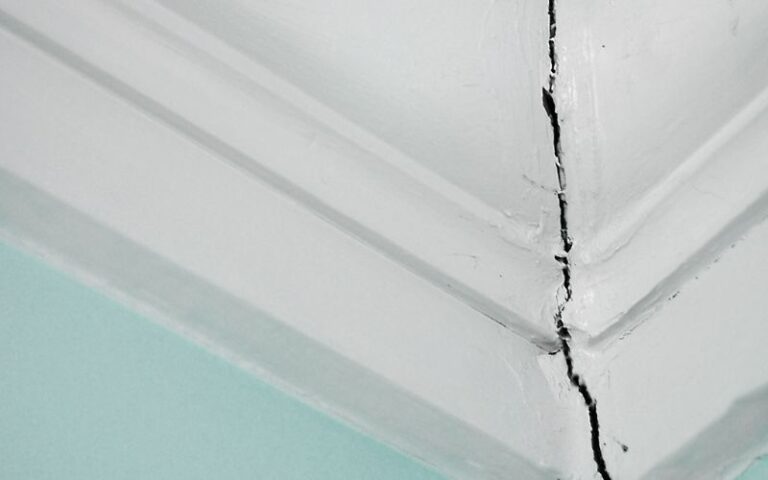Drywall screws are one of the most durable screws you can pair with several building materials for a sturdy grasp.
Notably, they’re primarily meant to serve as screws for attaching wall boards made from gypsum or wood to studs for a long-lasting hold.
However, while most screws are coated with zinc, drywall screws are coated with phosphate, which is news to most people.
If you’re wondering why drywall screws are phosphate coated, unlike others, you’re in the right place.
Drywall screws are coated with phosphate to prevent corrosion of the metal when screwing it into drywall or wall boards. The materials in drywall compound can cause a screw to rust and eventually break if it’s not made from a durable material such as phosphate or vinyl. Additionally, the phosphate coating on drywall screws makes them more flexible during screwing.
In this article, I’ll explain why drywall screws are coated with phosphate and if coated drywall screws get rusty.
By the end, you’ll learn if phosphate-coated screws are better than zinc-coated screws or regular drywall screws and how long phosphate-coated screws last.
Ready for a Drywall Quiz?
Why are Drywall Screws Coated with Phosphate?
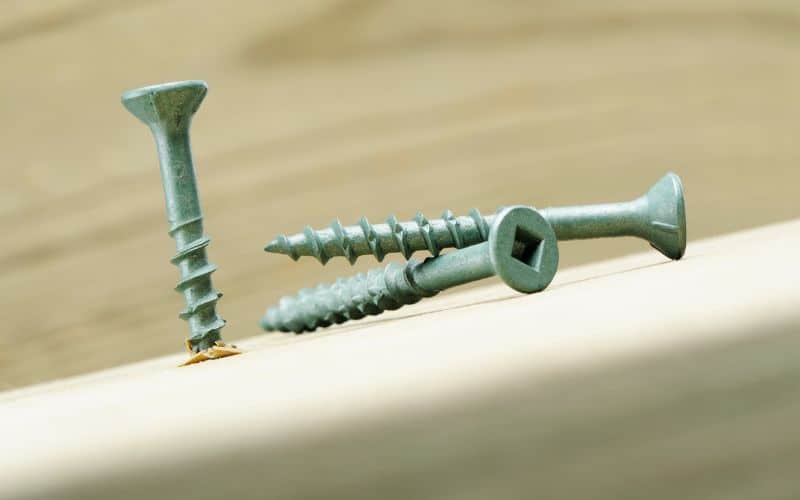
Drywall screws are coated with phosphate as a preventive measure against corrosion after or during the nailing process.
The phosphate coating on drywall screws makes them appear black instead of silver, as other steel screws without phosphate coatings appear.
Amongst other materials, phosphate coatings are more popular with drywall screws because they’re more rust-resistant than others.
It’s important to note that the phosphate coating process is chosen for drywall screens because of their compulsory clash with liquid in drywall compounds.
Therefore, creating a barrier between the steel and the drywall compound is essential to prevent rusting or corrosion.
Luckily, phosphate has been proven to be an affordable and readily available material that is a reliable solution for preventing rust.
Aside from the rust-resistant quality of phosphorous, it also ensures that the screws are more slippery and easier to nail on any surface.
Additionally, drywall screws coated with phosphate are known to provide stronger adhesion than others.
Can Coated Drywall Screws Rust?
Coated drywall screws are meant to last longer than regular drywall screws, but they can still rust, just like other screws.
The phosphate coats on drywall screws are meant to prevent rusting, but unfortunately, the effects are not long-lasting, so they’re still prone to rusting.
However, certain factors determine how fast your drywall screw will likely rust after drilling into a wallboard.
Below are the reasons why coated drywall screws rust;
#1. Coated Drywall Screws Rust due to Constant Exposure to Liquid
The primary cause of rusting in any type of screw is when it’s exposed to liquids regularly because of its immediate environment.
In the same way, coated drywall screws are not immune to rust when they’re constantly exposed to liquids daily.
When drywall screws are nailed into your kitchen, bathroom, or laundry room wallboards, they will likely get rusty quickly.
It’s important to note that phosphate coats can wear off quickly after being ridden with the electrolytes that constantly form when liquid touches them.
If you’d like your coated drywall screws to last longer without rusting, keeping them as far away from liquids as possible is best.
#2. Coated Drywall Screws Rust When It’s Used for Outdoor Projects
It’s best to use phosphate-coated drywall screws for indoor projects shielding them from liquid and an atmosphere that could encourage rusting.
When you use phosphate-coated drywall screws for outdoor projects, they’re exposed to carbon dioxide electrolytes that trigger the process of corrosion faster.
The rusting of your screws could happen even faster when hydrogen and oxygen in heavy amounts are added to the mix when they’re outdoors.
However, you can elongate the lifespan of coated drywall screws by limiting them to indoor drywall installations.
#3. The Manufacture and Quality of the Coated Drywall Screws
One of the most critical factors determining how fast your coated drywall screws rust is the phosphate coating and steel quality.
As trivial as it may seem, the manufacturers of building materials play a huge role in its overall quality and durability.
When it comes to drywall screws, you should know that the ones made in Canada and the U.S. are of higher quality and rust slower.
You can detect a low-quality coated drywall screw if it leaves silver on your hands when you touch it, unlike high-quality ones that don’t fade.
#4. Are Phosphate-coated Screws Better than Zinc-coated Screws?
Zinc-coated screws are a better option than phosphate-coated screws despite all the praise it receives.
Truthfully, phosphate-coated screws are an amazing choice for every type of screw except zinc-coated screws.
This is because zinc-coated screws last longer than phosphate-coated screws in the long run when it comes to preventing corrosion.
This is proven by the fact that zinc-coated screws have an average life expectancy of ten years, while phosphate-coated screws’ life expectancy is five years.
The significant difference between both coated screws is that one prevents corrosion while the other has a sacrificial layer that corrodes first to protect the rest.
Phosphate-coated screws have a preventive coat, and when corrosion finally seeps through, there’s nothing to protect the steel material from rusting too.
However, zinc-coated screws have an electromotive metal that bears the brunt of the rusting, while the steel is spared for much longer.
If you’re torn between using phosphate-coated screws or zinc-coated screws, you should make a decision based on if it’s an indoor or outdoor project.
Zinc-coated screws would be best for outdoor projects or installations because they rust slower and last longer.
However, phosphate-coated screws are best for indoor projects because of their aesthetic appeal and how they last longer indoors.
Asides from the difference in the reactive materials, zinc-coated screws, and phosphate-coated screws are made from.
Below are some more differences:
| Phosphate-coated Screws | Zinc-coated Screws |
|---|---|
| Phosphate-coated screws prevent corrosion from reaching the steel material. | Zinc-coated screws allow corrosion to affect the zinc before the steel. |
| Phosphate-coated screws get rusty after a short period. | Zinc-coated screws take much longer to rust. |
| Phosphate-coated screws are more affordable. | Zinc-coated screws are more expensive. |
| Phosphate-coated screws are easier to nail to surfaces. | Zinc-coated screws are tougher to nail to surfaces. |
| Phosphate-coated screws act as a great paint base. | Zinc-coated screws don’t adhere to paint quickly. |
| Phosphate-coated screws have an aesthetic appeal. | Zinc-coated screws don’t blend in quickly because of their appearance. |
| Phosphate-coated screws adhere best to smoother surfaces. | Zinc-coated screws adhere to both smooth and hard surfaces. |
| Phosphate-coated screws suffer from discoloration in a shorter time. | Zinc-coated screws take longer to get discolored. |
How Long Do Phosphate-coated Drywall Screws Last?
Phosphate-coated drywall screws last for about five years if they’re subjected to favorable conditions, and in some cases, they could even last longer.
However, if the phosphate-coated drywall screws are outdoors, they may last even less than five years which is their average life expectancy.
When used outdoors, they’re exposed to humid air, water, and other liquids that could easily trigger corrosion or rusting.
On the other hand, if they’re located indoors and hidden from constant exposure to liquid, they can last up to six or seven years without disintegrating.
Are Phosphate-coated Screws Better than Regular Drywall Screws?
Phosphate-coated screws are better suited for your drywall installations than regular drywall screws.
This is because the phosphate coats make the screws last longer before they rust, but regular drywall screws have no protective covering to prevent rusting.
Below are a few reasons why phosphate-coated screws are better than regular drywall screws;
- Regular drywall screws have no protection to prevent rusting, while phosphate-coated screws are primarily meant to prevent rusting.
- Regular drywall screws are stiff during installation, while phosphate-coated screws are easier to work with.
- Regular drywall screws can’t be used on hardwood, while phosphate-coated screws can be used on them.
- Regular drywall screws are less aesthetically pleasing in comparison with phosphate-coated screws.
- Regular drywall screws tend to snap during installation, while phosphate-coated screws are sturdy.
FAQs
What is the Coating on Drywall Screws?
The coating on drywall screws could either be zinc or phosphate, and they last longer on drywall installations and are more durable than regular screws.
Why are Screws Phosphate-coated?
Screws are coated with phosphate to keep them from rusting when they come in contact with drywall compounds during installations.
What are Phosphate Screws Used for?
Phosphate-coated screws are used for various purposes, such as; drywall installations, plaster boards, gypsum sheets, wallboards, sheetrock, plastic boards, and other minor building projects.

